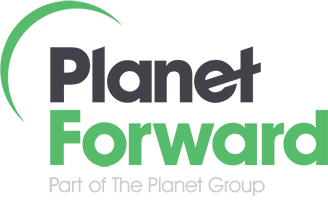As we step into the new year, there’s no better time to set fresh goals and position yourself for career advancement. Whether you’re actively job hunting or simply preparing for new opportunities, refreshing your resume is an essential step to ensure you’re showcasing your skills, accomplishments, and career trajectory in the best possible light. A strong, updated resume not only grabs the attention of hiring managers but also sets the tone for your personal brand.
At Planet Forward, we’ve helped countless professionals in engineering, energy, oil and gas, infrastructure, and manufacturing secure opportunities with a polished, strategic resume. Let’s explore how you can start the year strong by updating yours.
Reflecting on Your Recent Accomplishments
Before diving into edits, take some time to reflect on the past year. Think about the projects you completed, the responsibilities you took on, and the skills you developed. Consider the challenges you overcame and how you contributed to your organization’s success. This reflective process is the foundation of a compelling resume.
For example, if you managed a team through a complex project or introduced a new process that improved efficiency, these accomplishments should be highlighted. Be specific and include measurable outcomes. Rather than saying you “worked on manufacturing processes,” explain how you “reduced production downtime by 15% by implementing a new workflow.” Employers value concrete evidence of your impact, and numbers help them visualize your contribution.
Pro-tip: Do this every year! This helps keep your accomplishments front of mind for yourself and ensures your resume includes all the hard work you’ve done most recently.
Adapting to Modern Resume Trends
As the job market evolves, so do expectations for resumes. It’s no longer just about listing your job history—it’s about presenting a snapshot of your expertise and potential in a format that appeals to hiring managers and applicant tracking systems (ATS). Some organizations even utilize AI to scan and pre-select resumes, so you want to make sure you weave in relevant keywords for the types of positions you’re seeking out.
Recruiters now prioritize clear, structured resumes with a dedicated section for technical and industry-specific skills. If you’re in energy or engineering, this might mean listing tools like AutoCAD, MATLAB, or specific software for renewable energy systems. A modern resume should also highlight digital proficiencies. Whether you’ve used project management tools like Asana or leveraged data analytics to optimize processes, showcasing these skills can give you an edge.
Emphasizing Leadership and Soft Skills
While technical skills are critical, don’t underestimate the importance of soft skills. Employers are looking for professionals who can communicate effectively, solve problems creatively, and collaboratively lead teams through challenges. These qualities often set candidates apart, particularly in leadership roles.
If you’ve spearheaded a project, resolved conflicts within a team, or guided a department through organizational changes, weave these examples into your descriptions. Don’t just state that you’re a “team player.” Instead, tell a story about how your collaborative approach helped streamline communication between departments, leading to faster project delivery.
Employers appreciate candidates who can demonstrate they’re not just technically skilled but also capable of fostering a positive, productive work environment.
Simplifying for Maximum Impact
A cluttered resume can dilute your message. Hiring managers often spend mere seconds scanning a resume, so simplicity and clarity are key. Focus on the most relevant details and streamline your roles and descriptions.
Start by removing outdated or irrelevant information. If you’re a seasoned professional in manufacturing, your early entry-level retail jobs likely don’t add value to your narrative anymore. Similarly, while hobbies or interests might offer personality, they’re not always necessary unless you’re able to directly relate them to the role you’re pursuing. Even if you remove these things from your resume, you can always refer to these jobs or hobbies anecdotally in an interview to pepper in some more of your personality.
Ensure your layout is clean and professional, with consistent formatting and easy-to-read fonts. Choose a design that complements your main points without distracting from them.
For most professionals, a one-page resume is sufficient. However, if you have extensive experience, a two-page resume is acceptable. Just ensure every piece of information on there adds value. You may even want to consider having both a condensed and extensive version of your resume and submit them accordingly depending on what the job listing calls for.
Tailoring Your Resume for the Role
A generic resume can only take you so far. To truly stand out, you need to customize your resume for each role or industry you’re targeting. This involves incorporating keywords and phrases from the job description to align with what hiring managers are seeking.
For example, if you’re applying for a position in renewable energy, your resume should reflect your expertise in areas like sustainable energy solutions or solar infrastructure. Start with a strong summary statement that aligns with the role, such as, “Renewable energy specialist with a proven track record in developing and managing large-scale solar projects.” Tailoring your resume shows hiring managers you’re intentional about the position and sets you apart from candidates submitting generic applications.
Showcasing Certifications and Ongoing Education
Certifications and training can be game changers in competitive industries. Whether you’ve recently earned your PMP certification, completed OSHA safety training, or advanced your knowledge with a Six Sigma credential, these accomplishments should be prominently featured.
Employers in engineering, infrastructure, and energy value candidates who stay current with industry standards and trends. If you’ve attended workshops, completed online courses, or pursued certifications over the past year, include them as proof of your commitment to professional growth.
Proofreading and Final Touches
No matter how impressive your resume is, typos and errors can undermine your credibility. Always review your document carefully and consider asking a trusted friend or mentor for feedback. Spelling & grammar check tools can help catch basic mistakes, but a human perspective is invaluable for ensuring clarity and flow.
Your resume should also align with your LinkedIn profile. After updating your resume, review your LinkedIn page to ensure consistency. A polished, cohesive online presence is just as important as a well-crafted document.
Partnering with Staffing Experts
Refreshing your resume can feel overwhelming, but you don’t have to do it alone. Working with a staffing partner like Planet Forward can provide valuable insights and tailored advice. As specialists in connecting talent with opportunities in engineering, energy, and manufacturing, we know what hiring managers are looking for and can help you position yourself for success.
This year, take control of your career by starting with a strong, updated resume. It’s more than a document—it’s your first step toward new opportunities, growth, and success. Let Planet Forward guide you to the next phase of your professional journey.
Ready to make your move? Contact us today or take a look at our job openings and let’s build your future together.

